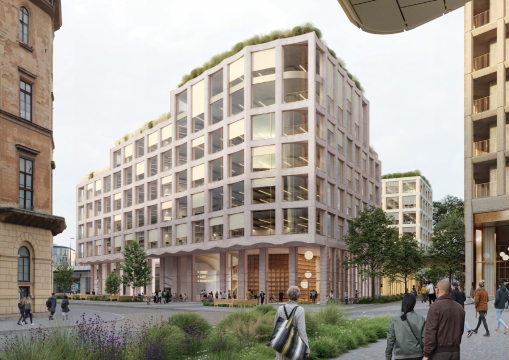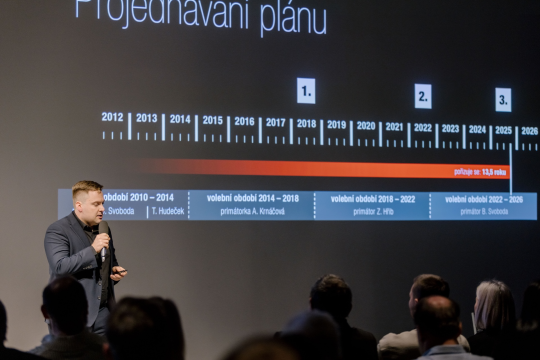The number of Airbnb apartments in Prague is on the rise. An amendment to the Trade Licensing Act will allow the city to regulate the platform.
According to an analysis by the Prague Institute of Planning and Development (IPR Prague), the number of properties being rented out for short-term accommodation in the city is on the rise again, after decreasing during the COVID-19 pandemic. This worldwide trend is being regulated in many European cities due to the negative impacts it can have on local residents and mainstream accommodation services. Thanks to a forthcoming amendment to the Trade Licensing Act, Czech towns and municipalities will also be able to regulate these rentals.

"We previously submitted a proposal to the House of Commons for an amendment to the Trade Licensing Act that would allow cities to self-regulate non-classic accommodation services, and I am very pleased that the Ministry of Regional Development is now responding to our efforts. If all goes well, the forthcoming amendment could be approved by the Chamber of Deputies later this year," says Petr Hlaváček, Prague's Deputy Mayor for Territorial and Strategic Development.
IPR Prague produced the first analysis of short-term private rentals in 2018, with the third and latest update including data for 2022 and 2023. According to figures from last year, the number of short-term rental properties is growing due to the gradual recovery of tourism after the pandemic. Given the growth trend in the capital, the volume of supply is likely to match pre-pandemic levels.
Ondřej Boháč, Director of IPR Prague, says: "We need accurate data to develop the city properly. That’s why here at IPR Prague we monitor and evaluate the status and development of various issues and phenomena, and the phenomenon of short-term accommodation is no exception. As a result, we can choose the best approach to the development of this sector as well as to its regulation, therefore mitigating its negative impact on the city.”
The IPR Prague analysis examines short-term private rentals using the example of the Airbnb platform, which is one of the largest providers of this service in the city. In addition to its evolution over time, it also looks at the spatial distribution and structure of rental offers. It aims to assess the position of Airbnb in relation to the population, housing stock, and traditional accommodation services, to provide an overview of the legislation affecting Airbnb in Prague, and to describe the approaches to regulation in place in selected European cities. The findings of the analysis include:
- In March 2023, 7,930 Airbnb units were offered in Prague.
- Most of the units offered are long-term rentals of entire apartments; the shared-room-only sector can be considered virtually non-existent in Prague.
- Almost 80 percent of the units are offered by hosts who rent out two or more units in Prague. There are 2.8 units per host.
- The rentals offered in Prague are extremely concentrated in the city center. In the historic core, short-term rentals account for over 10 percent of the housing stock.
You can download the analysis here (CZ only).
You might also be interested in

DEVADE: Prague's Architecture Amidst Austerity and Disco. A new book and exhibition at CAMP map Prague of the 1990s.

New Florenc to Be Designed by 15 European Studios: Prague Announces Winners of International Architectural Competitions.

